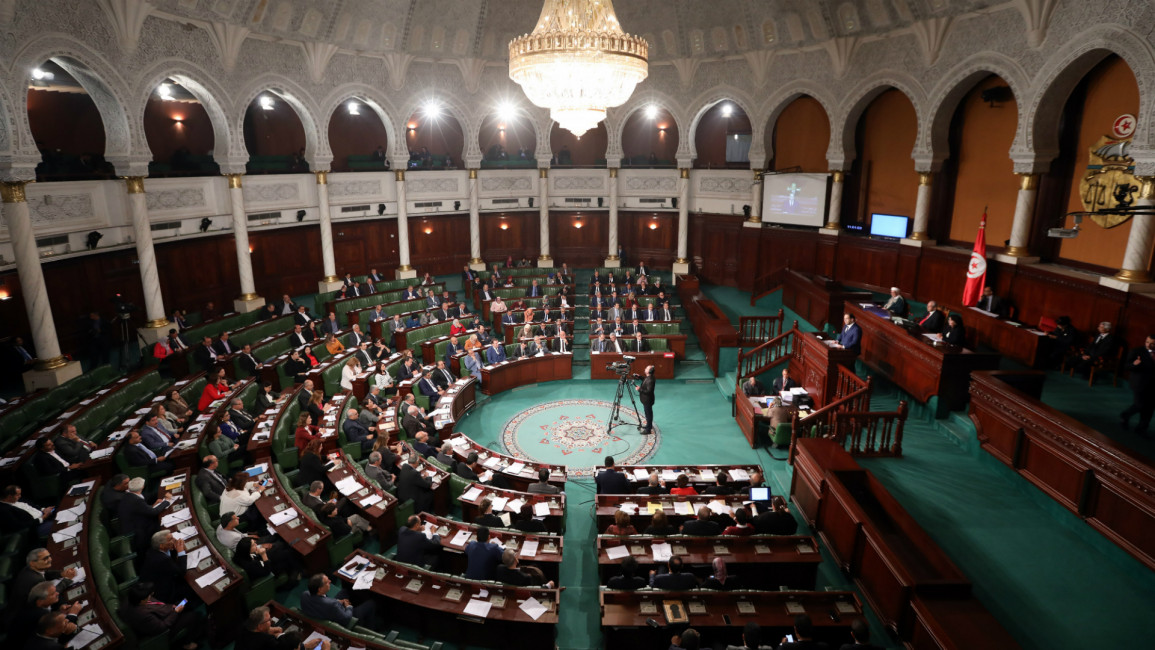Tunisia parties seek to remove parliamentary speaker Rached Ghannouchi
At least five political parties in Tunisia have launched a vote of no confidence in parliamentary speaker and leader of Tunisia's moderate Islamist Ennahda party Rached Ghannouchi, who they accuse of having partisan interests.
A vote of no confidence has been pushed for by parliamentary blocs including the Tahya Tounes, Attayar, Chaab and Reform parties, which are in the coalition with Ennahda.
The group has agreed to begin the process of withdrawing confidence from the speaker, citing numerous violations, poor management and unilateral decisions that serve partisan interests, according to a Reuters report quotting Mohammed Ammar from Attayar Party.
Withdrawing confidence will require the signature of 73 members of the house for it to be put to a public vote.
To succeed, 109 lawmakers will need to vote for no-confidence. The five parties have about 90 members.
Leader of the Free Constitutional Party Abir Moussi, a supporter of ousted ex-President Zine El Abidine Ben Ali - who was overthrown by the 2011 revolution - has been campaigning to oust Ghannouchi for weeks.
Twitter Post
|
Moussi's party accuse Ghannouchi of serving the Muslim Brotherhood's agenda and foreign allies, including Turkey and Qatar.
Ghannouchi has rejected these accusations, arguing that Tunisians want a government focused on economic and social policy, not political in-fighting.
Ennahda called on Sunday for the resignation of Prime Minister Elyes Fakhfakh and demanded the formation of a new government, escalating the country's political crisis.
The party said that it wants "to hold talks to form a strong new government because this government lost credibility after suspicion of conflict of interest involving the prime minister", Imed Khmiri a senior official in Ennahda told Reuters.
Fakhfakh has denied accusations of corruption, after an independent parliamentary review published documents last month indicating that the prime minister holds shares in companies that have won government deals worth 44 million dinars (15.4 million US dollars).
Meanwhile, hundreds of Tunisians demonstrated in the south of the country on Saturday against unemployment.
Southern Tunisia is one of the country's most marginalised regions, with above-average unemployment, failing infrastructure, and a stunted private sector.
Nearly a decade after the revolution that toppled Ben Ali, the government has yet to resolve regional inequalities.
In recent weeks, protests have also rocked the southern town of Tataouine, some 80 kilometres (50 miles) from Remada, with demonstrators demanding the government honour a 2017 pledge to invest millions to develop the region and provide jobs to thousands.
Follow us on Facebook, Twitter and Instagram to stay connected


![President Pezeshkian has denounced Israel's attacks on Lebanon [Getty]](/sites/default/files/styles/image_684x385/public/2173482924.jpeg?h=a5f2f23a&itok=q3evVtko)



 Follow the Middle East's top stories in English at The New Arab on Google News
Follow the Middle East's top stories in English at The New Arab on Google News


